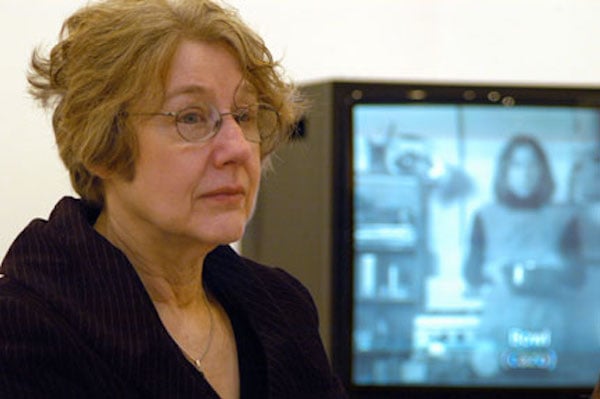
Photo: via Centro José Guerrero.
Martha Rosler has been named as the inaugural recipient of the 100K Prize, a biennial award given by The New Foundation Seattle (TNFS) to an influential, US-based female artist (including transgender women) to celebrate and reward her artistic achievements.
The non-profit organization TNFS was founded in 2012 by art collector Shari D. Behnke, and includes support programs for artists as well as public programs.
Rosler will receive a $100,000 unrestricted cash gift, complemented by a full year of exhibitions and public programs in Seattle.
“I am honored and delighted to be the first recipient of the 100K Prize from The New Foundation Seattle, an award instituted in recognition of women artists whose work has shown a commitment to social justice,” Rosler said in a statement.
“It is especially gratifying that this generous prize seeks to support artists like me, who are trying to think through the role of art in the activation of communities, and that this is reflected in the year-long programming dedicated to opening social questions to broad publics in different locales around the city.”
Martha Rosler, still from Born to be sold: Martha Rosler reads the strange case of Baby S/M (1988).
Photo: via MACBA.
“Martha Rosler was a clear choice for the first 100K Prize,” Yoko Ott, founding director of TNFS, told Artforum. “She is an influential artist and a keen social commentator who has shown an enduring commitment to her practice of provoking conversation on the issues that affect us all. Her civically engaged work helped inspire the strategy behind the Prize’s accompanying public programming.”
Rosler was born in 1943 in Brooklyn, New York. Her work—which spans photography, video, writing, performance, sculpture, and installation—explores questions related to public and everyday life, and the role of women within them. Two of her best-known films, the seminal Semiotics of the Kitchen (1975) and Martha Rosler Reads Vogue (1983) are feminist video perfomance pieces that challenge the commodification of the traditional roles, desires, and insecurities assigned to women in contemporary society.
Martha Rosler, Cleaning the Drapes, from the series “House Beautiful: Bringing the War Home” (1967–72).
Photo: via MoMA.
War is also an ongoing concern for Rosler. Her famous “House Beautiful: Bringing the War Home” series, made in response to the Vietnam war between 1967 and 1972, was reprised between 2004 and 2008 to address the wars in Iraq and Afghanistan.
Rosler received a Guggenheim Museum Lifetime Achievement Award in 2010 and presented “Meta-Monumental Garage Sale,” her first solo show at New York’s MoMA, in 2012.